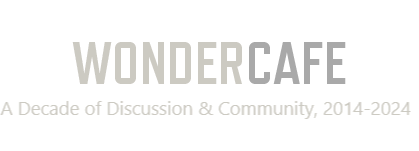ChemGal
One with keen eye
- Pronouns
- She/Her/Her
I've seen this go around multiple times:
http://i.huffpost.com/gen/2271298/thumbs/o-ROBOT-HUGS-570.jpg?6
Under the heading what if physical illnesses were treated like mental illnesses and then it's often encouraged to treat mental illness like physical illness. I take issue with the examples used, as people DO say things like these to those with physical illnesses. Is the way we treat physical illness really the goal for mental illness? Why not shoot higher?
http://i.huffpost.com/gen/2271298/thumbs/o-ROBOT-HUGS-570.jpg?6
Under the heading what if physical illnesses were treated like mental illnesses and then it's often encouraged to treat mental illness like physical illness. I take issue with the examples used, as people DO say things like these to those with physical illnesses. Is the way we treat physical illness really the goal for mental illness? Why not shoot higher?

